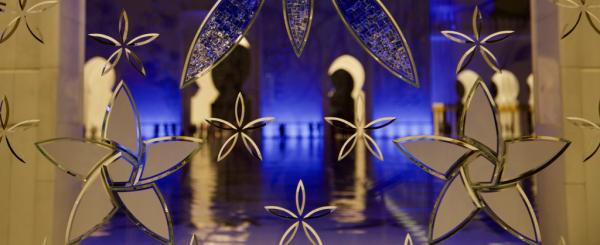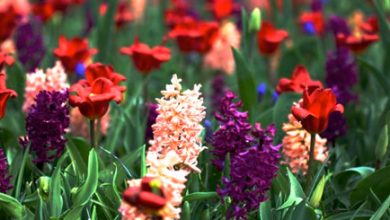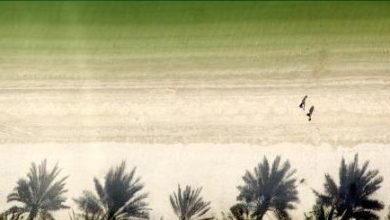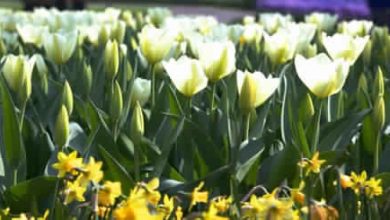PART 4 – PATIENCE AT THE FIRST BLOW

The Prophet (SAW) passed by a woman who was crying over a grave and said, “Fear Allah and be patient.'” She said, “Away from me! My calamity has not befallen you and you are not aware of it.” The woman was later told that it was the Prophet (SAW) (who had advised her). She came to his door where she found no doorkeeper. She said, “(I am sorry) I did not know you.” Messenger of Allah (SAW) said, “Patience is (becoming) only at the first (stroke) of grief“. [Bukhari & Muslim]
What is our reaction when faced with a tragedy? Patience has to be demonstrated at the point of impact, not days later or as an afterthought. When our initial reaction is to scream, get angry and blame Allah, we have already failed the test.
We can cry and feel sad when undergoing difficulty, but that sadness should not translate to kufr on our tongues and actions. How many of us cannot accept the death of a loved one and get angry with Allah, or make careless statements that the death was not at the right time? There are countless grieving mothers, sons, daughters, husbands, wives and friends who cannot come to terms with death, and indirectly blame Allah for taking their lives at the wrong time.
No matter how bitter the occurrence, we have to believe in Allah’s promise that good tidings will come to those who are patient, and that Allah is with the patient. Umm Salamah (RA), one of the wives of Muhammad (SAW), was reported to have said that her husband, Abu Salamah (RA) told her that he heard the Messenger of Allah (SAW) say: “There is no Muslim who is stricken with a calamity and reacts by saying as Allah has commanded: ‘Inna lillahi, wa inna ilaihi raji’un. Allahumma indakah-tasabtu musibati, fajurni iha, wa ‘awwidni minha (Truly, to Allah we belong and truly, to Him we shall return. O Allah, with You I seek reward for my calamity, so reward me for it and compensate me),’ but Allah will reward him for that and compensate him with something better than it.”
She said: “When Abu Salamah died, I remembered what he had told me from the Messenger of Allah (saw) and I said: ‘Inna lillahi, wa inna ilayhi raji’un. Allahumma indakah-tasabtu musibati, fajurni ihaiha (Truly, to Allah we belong and truly, to Him we shall return. O Allah, with You I seek reward for my calamity, so reward me for it).’ But when I wanted to say wa ‘awwidni minha (and compensate me with better), I said to myself: ‘How can I be compensated with something better than Abu Salamah?’ Then I said it, and Allah compensated me with Muhammad (SAW) and rewarded me for my calamity.”
We wrongly think that we know what is best for us, and do not appreciate that Allah is the one who plans everything, beyond the scope of our knowledge and wisdom. Even Ayyoub (AS) was not in a hurry for respite from his pain and poverty. He only made du’a for Allah to cure him when the wicked people in his community started creating slanders and rumours about him, jeopardising his da’wah efforts. He asked for a cure so that the message of Islam would be preserved, not for the sake of his own personal comfort.
When calamity strikes
We have advised against making du’a for patience, but when calamity happens, we should ask for patience to bear the calamity. This is the test of our patience in Allah. We will end up seeking help from others, taking pills and relying on all sorts of other remedies which often generate association (shirk) with Allah.
Our calamity paves the road of happiness or the road of misery. We can generate our own calamity through our own tongues and hearts, and also alleviate our calamity through our tongues and hearts.
When a catastrophe strikes, we should take the following steps:
-
- seek repentance from Allah.
- say inna lillahi inna ilaihi raji’un
- supplicate to Allah
- be grateful to Allah, and believe that what has happened is the best for you even if you hate it.
Allah knows what you do not. Allah is not hasty, careless or does things mistakenly or at random. If you understand this, then all your panic and unhappiness will evaporate. Nothing can happen without the will of Allah:
“Exalt in the name of Allah the most high, who created and proportioned, and who destined and then guided.” (Surah Al A’la 87:1-3)
Focus on all the other blessings Allah has given you, and you will realise that the situation is not as bleak as it seems. Human beings tend to focus on the one element that hurts, and allows this to overshadow all the other things that give pleasure or are working well.
Further, compared to the torture of the Hereafter, the calamity of dunia is miniscule. What about the torture in the grave where we don’t even have painkillers to help us? What makes us able to handle the discomforts faced in dunia is faith in the unknown, the belief in Allah and the unseen.
An indication of impatience is anger. Rasulullah SAW said that one of the ultimate levels of goodness is when someone swallows a moment of anger for the sake of Allah.
Patience is accompanied by contentment. We cannot claim that we are patient if we are complaining, dissatisfied and annoyed with what has occurred. If we are contented with Allah, there is no reason to behave negatively or to shout at others when things go wrong. We would not be upset because someone is richer or more beautiful than we are. We would not become jealous if Allah grants someone the toys of dunia, but not iman. We would not need to check out what other people own, how they dress, or how their bodies look in comparison to ours. When we compare, we display kufr, shirk, jealousy and envy, implying that Allah make a mistake giving the other and not to us.
continued here




